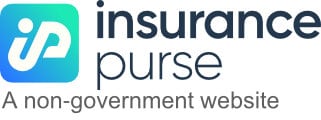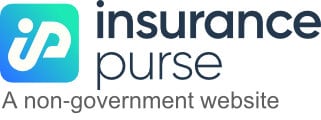Health Insurance
Navigating Health Insurance for Self-Employed Individuals
In today’s rapidly changing work environment, more people are opting to be self-employed. While this choice offers flexibility and independence, it also presents unique challenges, particularly when it comes to securing health insurance. Navigating health insurance as a self-employed individual can be daunting, but with the right strategies, you can find a plan that fits your needs and budget.
Understanding Your Options
First and foremost, it’s important to understand the health insurance options available to self-employed individuals. Navigating health insurance starts with exploring various plans offered through the Health Insurance Marketplace. These plans come in different tiers – Bronze, Silver, Gold, and Platinum – each with varying levels of coverage and costs. Additionally, you might qualify for subsidies based on your income, which can significantly reduce your premiums.
Health Savings Accounts (HSAs)
One effective strategy for managing healthcare costs is utilizing a Health Savings Account (HSA). HSAs are tax-advantaged accounts designed to help you save for medical expenses. To be eligible for an HSA, you must have a high-deductible health plan (HDHP). The contributions to your HSA are tax-deductible, and withdrawals for qualified medical expenses are tax-free. This can be a valuable tool in your journey of navigating health insurance, providing both immediate and long-term financial benefits.
Short-Term Health Insurance Plans
Sometimes, you might need coverage for a short period, perhaps between jobs or while waiting for a longer-term plan to start. Short-term health insurance plans can be an affordable option for temporary coverage. These plans typically offer lower premiums but come with higher out-of-pocket costs and limited benefits. Nonetheless, they can provide essential protection during gaps in coverage, helping you avoid unexpected medical expenses.
Professional Associations
Another avenue to explore when navigating health insurance is joining professional associations related to your field of work. Many of these associations offer group health insurance plans to their members, which can be more affordable than individual plans. Research and reach out to associations in your industry to see if they offer health insurance options that meet your needs.
Telemedicine and Digital Health Tools
The rise of telemedicine and digital health tools has revolutionized the way we access healthcare. For self-employed individuals, these innovations offer a convenient and cost-effective way to receive medical care. Many health insurance plans now include telemedicine services, allowing you to consult with healthcare providers remotely. This can save you both time and money, reducing the need for in-person visits and associated costs.
Navigating Health Insurance During Open Enrollment
Open enrollment is a critical period for securing health insurance. During this time, you can enroll in, renew, or change your health insurance plan. It’s essential to review your current coverage and consider your anticipated healthcare needs for the coming year. Compare different plans, taking into account premiums, deductibles, co-pays, and out-of-pocket maximums. By thoroughly evaluating your options, you can make informed decisions that best suit your healthcare needs and budget.
Tax Considerations
As a self-employed individual, you have the advantage of deducting health insurance premiums from your taxable income. This can result in significant tax savings. Ensure you keep accurate records of your health insurance payments and consult with a tax professional to maximize your deductions. Additionally, contributions to an HSA are tax-deductible, providing further tax benefits and helping you manage your healthcare expenses more effectively.
Networking and Support
Navigating health insurance can be overwhelming, but you don’t have to do it alone. Networking with other self-employed individuals can provide valuable insights and support. Join online forums, attend local meetups, or participate in social media groups where you can share experiences and learn from others. Hearing how others manage their health insurance can offer practical advice and help you make better-informed decisions.
Planning for the Future
Finally, it’s crucial to plan for the future. As your business grows, your healthcare needs may change. Regularly review your health insurance coverage to ensure it continues to meet your needs. Stay informed about changes in healthcare laws and regulations that might impact your options. By staying proactive and planning ahead, you can navigate health insurance successfully and focus on growing your business.
Navigating health insurance as a self-employed individual may seem complex, but with careful planning and the right resources, you can find a plan that provides the coverage you need without breaking the bank. By understanding your options, leveraging tax benefits, and staying informed, you can ensure that you and your family are protected, allowing you to focus on the success of your business.












